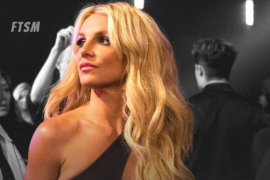When I read Kelly Exeter’s book Your Best Year Yet, there were so many fist pump moments, I nearly ended up with RSI. But there was one chapter that reached out and grabbed me by my shirt-front, and shook me around until my head was screwed on right. That was the chapter about failure. Not only am I scared of failing, I’m scared of people seeing me fail. In the past, it’s stopped me from trying some cool things because I didn’t want to try something and have not many people show up.
But after reading Kelly’s book, I launched my first course, The Writers Cartel Kickstarter Course for new and emerging freelance writers (I’ll be running it again in January if you’d like to get on board). It has been one of the best things I’ve done in ages. And I have Kelly to thank. If you wonder what you’d be capable if you weren’t scared of failing, check this out…
I am so excited the Champagne Cartel girls invited me to write on this topic because it’s something I am quite passionate about.
Yes, I know, weird.
And I guess it’s not so much that I am passionate about failure, it’s more that I’m passionate about helping people remove the FEAR of failure from their lives.
The FEAR of failure gets in the way of so much cool stuff and I’m tired of watching people held back from doing cool stuff by these fears. So with that in mind, here are ten things I know to be true about failure. Hopefully once you know them to be true too, you can get on with the fun business of trying out cool stuff rather than always finding yourself caught up in the fear of what can go wrong.
10 things I know about failure
-
People don’t notice your failures as much as you think
I am putting this number one because if you walk away from this piece with nothing else, I want you to understand this one.
When we put it out there that we’re trying something new or having a crack at a big hairy audacious goal, we think people are keeping tabs on whether we actually achieve these things. But the fact is, they’re not. Mainly because they’re having so much trouble keeping track of what they themselves are doing, they don’t have time to keep track of your stuff too.
I’ll give you an example. A friend of mine, (let’s call her Em because, well, that’s her name), recently announced on Facebook that she’d submitted a book manuscript to a publisher. Very exciting stuff. And I’m sure she was quite terrified at announcing it so publicly because, god, what if nothing came of it? What would people think?
The fact is, unless she came on Facebook three months later and announced to the world ‘guys, my manuscript got rejected’, few people would even remember she’d done that big scary thing. And it’s not because we don’t care – it’s because we all know so many people doing and trying so many things, we just don’t have time to keep track of it all.
-
When people DO know about your failures, they care far less about it than you think
Let’s stick with Em who, to my knowledge, has not yet received any kind of rejection from a publisher. But let’s say she did. And let’s say she shared that ‘failure’ with her friends and followers on Facebook. Here’s how it would pan out: Em would make her announcement, everyone would commiserate with her … and then a day or so later, everyone will have forgotten about it.
Think about big time business people like Donald Trump and Richard Branson. These guys have had countless spectacular failures that have made it on to the news all over the world. Yet I bet you’re struggling to remember any of them. And if you ARE remembering them, it’s only because I am prompting you to do so.
The thing is, WE just don’t care that much about other people’s failures. Which means other people don’t care about OURS.
-
Failure is great because it allows you to create a lot of whitespace in your life
Readers of my blog will know that I’m a big fan of ‘whitespace‘ – time in your day (and life) to breathe, dream and be. Failure is brilliant for helping you create whitespace because it allows you to cross things off your list. (You know the ‘list’ I am talking about – we all have one).
When you stop fearing failure, you become more willing to have a crack at the things on that list. And in having a crack, you get the chance to find out which of those things are not for you. This creates lots of space for breathing, dreaming and being.
-
You can’t have success without failure
I defy you to find me one person who has been successful in any aspect of their life, at any THING, big or small, who didn’t first ‘fail’ in some way at that thing first. So isn’t weird (and perhaps a little arrogant) for any of us to want a leave pass to skip failure and cut straight to success?
-
Failure is feedback
This is why success always comes after failure. Because failure is the thing that allows us to fine tune processes and make necessary corrections. Failure forces us to look closely at things and motivates us to determine what can be done better.
I remember back in my triathlon days, whenever I had a good race I’d pat myself on the back and say to myself ‘hey, nice one’. I learned pretty much nothing from those good races because the motivation wasn’t there to self-examine too closely when things were going well. Bad races however, I analysed those to the nth degree. THOSE were the races that made me a better athlete.
-
Failure tells us what’s important
When we fail at something, and we find ourselves willing to have another crack … that tells us that thing is really important to us. Success does not tell us what is important. There are many of us stuck doing stuff that is not all that important to us, simply because we’re good at that thing.
Not a lot of self-examination comes from success.
-
Failure teaches us to fail better
This is important. Failure is a part of every life. If we assiduously avoid failure by way of never trying anything, we never learn how to fail. Which means when we DO fail (and we will) – we don’t know how to cope with it. The more we’re willing to try things, the better we become at failing fast, and then moving on to the next step even faster.
-
Failure does not define you
I’m going to be blunt here. Saying “I’m a failure” is a self-pitying statement. No one’s failure defines them. Only the way they respond to the challenging circumstances that failure presents does.
-
Beware, failure can be addictive
Once you get on board with failure it can be quite seductive. You can get so good at it, it can become your ‘thing’. Beware of this because (in what might seem a contradiction of what I said above), it can start to define you in that you become that person who is so willing to fail you never persist fully with something.
This is where being experienced with failure helps – it gives you better instincts for when something truly is just not going to work, and for when it’s worth persisting just that little bit longer.
-
Failure is not the end of the story, it’s just part of the story
Don’t need to say much more beyond that do I? The next time something falls through and you get tempted to think it’s the end of the world, give yourself a slap.
Because … it’s not even close to being that.
“No human ever became interesting by not failing. The more you fail and recover and improve, the better you are as a person. Ever meet someone who’s always had everything work out for them with zero struggle? They usually have the depth of a puddle. Or they don’t exist.” – Chris Hardwick
What would you do, if you weren’t afraid to fail?
—–
 Kelly Exeter is the author of Your Best Year Ever, Editor of Flying Solo and owner of Swish Design. She’s also a runner, reader, mother, wife, daughter, sister, friend … the list, it goes on! Yet she also pens a blog called A Life Less Frantic. How does that work? The answer to that starts here.
Kelly Exeter is the author of Your Best Year Ever, Editor of Flying Solo and owner of Swish Design. She’s also a runner, reader, mother, wife, daughter, sister, friend … the list, it goes on! Yet she also pens a blog called A Life Less Frantic. How does that work? The answer to that starts here.














Wise words as usual from the fabulous Kelly Exeter. Learning to fail as an adult is hard but necessary. I’ve found it helps me empathise with my kids when they are trying to new things too. x
Thanks so much V! And yes – so right about it teaching us to empathise with and appropriately encourage our kids when they’re trying new stuff!
And such a great skill to pass on to them – to learn that it’s okay to try and fail, as long as you get back up again. xx
Kel, you really are one clever cookie. Love this post. And it reiterates what Caz and Jadah said at ProBlogger that really resonated. Thanks for laying it out in ten points. x
Thanks for being ok with me using you as an example!!!
Wise wise words my friend x
Thank you Nik xx
So awesome x
I have. Just been listening to Elizabeth Gilbert’s podcast talking about this topic today. Hmm perhaps the universe is trying to tell me something. Great post. Thank you Kelly. Bron
I’ll have to find that podcast – love Elizabeth Gilbert!